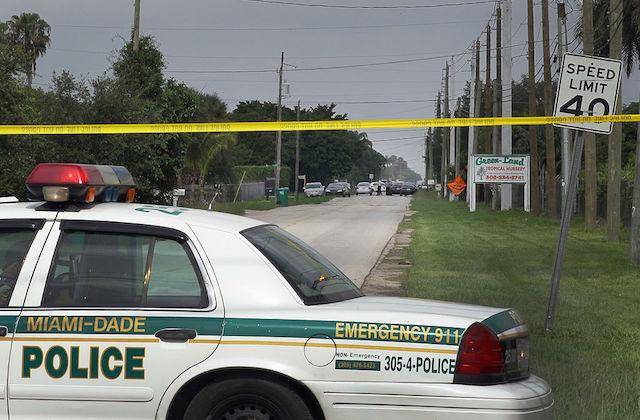According to The Washington Post’s fatal force database, police have killed 610 people so far in 2017. Fully a quarter of the dead were dealing with mental illness. An article posted by The Atlantic today (August 11) posits that many of those lives could be saved if law enforcement officers had crisis intervention team (CIT) training.
In “How Mental-Health Training for Police Can Saves Lives—and Taxpayer Dollars,” Norm Ornstein and Steve Leifman use Miami-Dade County as an example of what they argue law enforcement agencies across the country should be doing.
Miami-Dade County is a behemoth; it’s the seventh most populous county in the United States, with over 2.7 million people in 34 incorporated cities and towns. It also has the highest concentration of those with serious mental illnesses in the country: 9.1 percent of the general population, which translates to 192,000 adults and 55,000 children. Seventeen years ago, Miami-Dade experienced the same kind of violent encounters on a regular basis that we see reflected in the news today. There was, on average, one death a month stemming from interactions between police and residents with these illnesses, along with about 20,000 arrests and incarcerations each year.
Yet since 2010, the two largest police agencies, the City of Miami and Miami-Dade County police, have handled 71,628 mental health-related calls—and have made only 138 arrests. Miami-Dade taxpayers were on the hook for millions of dollars from wrongful-death lawsuits; today, fatal shootings are down almost 90 percent. More than 20 percent of those in county jails had serious mental illnesses, costing many millions to keep them there. Recently, the decline in arrests and incarcerations enabled the county to close a jail and save taxpayers $12 million a year.
What changed? A comprehensive program to structurally transform the way the community responded to people with mental illnesses (which Miami-Dade County Judge Steve Leifman, one of the authors of this piece, initiated). A key component was the CIT training of over 5,400 police officers in Miami-Dade, representing all 36 police departments, using a 40-hour program crafted initially in Memphis, Tennessee, in the late 1980s.
The authors—one of whom, Miami-Dade County Judge Steve Leifman, initiated the Miami program—also explain that the program improves the mental health of the officers, which in turns prevents police killings:
But the culture in the police world is not to acknowledge fear, stress or weakness—and if officers do, they can be pulled off the street and put on a desk. Police who are suffering or dealing with PTSD may be more prone to hair-trigger reactions, which in turn can mean more tragedies. Those who’ve gone through the Miami-Dade program have been more willing to recognize their own stress and to seek help. Around 150 CIT-trained officers each month reach out to the program’s coordinator for mental-health advice and treatment for their own traumas.
The article ends with a call for more municipalities to adopt CIT training. Read the full article here.
